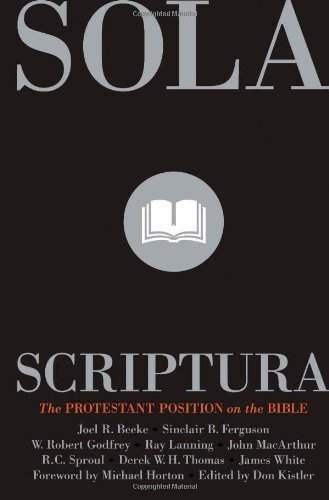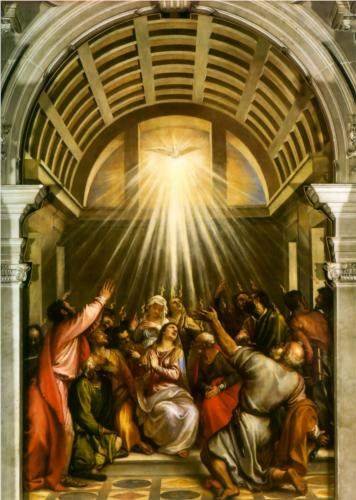The more I read of Protestant apologetics, the more I am convinced that Protestantism exists only as a rejection of the Catholic Church. It is wholly a negative; it has nothing substantive or positive to say in support of itself. When it comes down to the issues that define the Protestant tradition, the venerated “five solas,” Protestantism was born as a polemic against Catholicism, and even today, 500 years later, has no reason for being in itself apart from that polemic.
That’s why Protestant apologists appear to rail so desperately against Catholic claims. I have yet to read a work of Protestant apologetics that can stand for itself, apart from its opposition to Catholic claims. This book, Sola Scriptura, is a case in point. I have not read more than a paragraph or two that sought to support the doctrine by anything more than a negative reference to Catholic doctrine. “Protestantism is true because Catholics say this and this is not true.” Sola — alone — the very notion implies a rejection, “and not something else.”
Catholic apologetics, on the other hand, is an entirely different animal. It is by definition positive, and even in reference to Protestant claims, it presents a positive case from Scripture and Tradition why Catholicism is true. It can support itself in most cases without even referencing the Protestant claim: “Catholicism is true because Scripture teaches this and the Church has always held this to be true.” With regard to sola scriptura, it is not incumbent upon the Catholic apologist to prove that Scripture is not an authority, since it most certainly is the highest authority! (in contrast to the Protestant apologist, who seeks to prove that Tradition is not an authority). All one must show is that Scripture is not the only authority, and one can do that simply by pointing out the many reasons why Tradition is authoritative.
I am often critical of Protestant doctrine, it’s true, but in that criticism, I offer something better; I don’t outright declare Protestantism false, since in most cases, it contains something of the truth. A cursory search of my blog turns up fewer than thirty posts in which I’ve even used the word “false,” out of some 230. Sola scriptura is not a bad doctrine in itself: holding Scripture as a high authority is a wonderful thing! It is only wrong-headed it that it limits God and redacts His revelation.
Where Protestants and Catholics agree, in the great positive that is Christ Jesus, we have no meaningful dispute at all. Jesus saves! It is by His grace alone, not by anything we must do, that we are saved! Our sins are forgiven, and the bonds of sin and death are broken! We have eternal life in Him, by His grace and overwhelming love and mercy! It is only where Protestants seek to stir up dispute — that salvation is by faith alone (in rejection of something or another Catholics supposedly believe, or do not in fact believe) that we have dispute.
It often seems to me, in reading Protestant apologetics, that these people are scared out of their minds. They see the mass defections from Protestantism and fear down to their marrow that they have no reason for being at all: that especially at this generation, as more and more people are finding the truth of the Catholic Church, their longstanding polemic is finding fewer and fewer footholds. I am frequently flabbergasted by the extent to which these Protestant apologists — invariably, and I mean no offense, old men, in contrast to the many, many, young and vibrant Catholic apologists — spew thorough and apparently willful misunderstandings and wanton misrepresentations of Catholic positions, statements so fundamentally wrong that I can only think they have been told otherwise hundreds of times and yet stubbornly cling to their flawed understandings.
I have recently come across a prominent anti-Catholic Protestant apologist (I will not name him, lest I steer more traffic his way) who prints flat-out lies and fabrications about the Catholic Church, factual errors that are so demonstrably false that the quickest google could disprove them — and he does so willfully; when confronted with his errors (and I have confronted him), he refuses to correct them. I think, in this digital age, it’s above all the easy access to the truth that is responsible for so many crossing the Tiber: the oft-repeated falsehoods about the Catholic Church can no longer stand up to simple scrutiny, and yet the old Protestant apologists continue to hurl them, railing desperately from their sinking ships.



